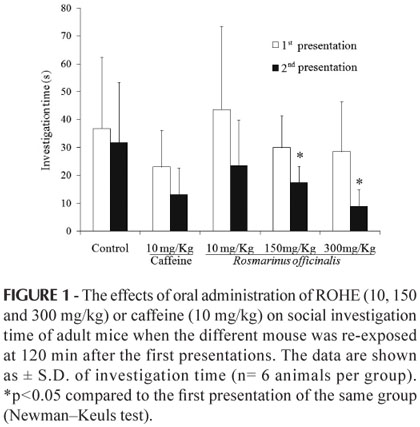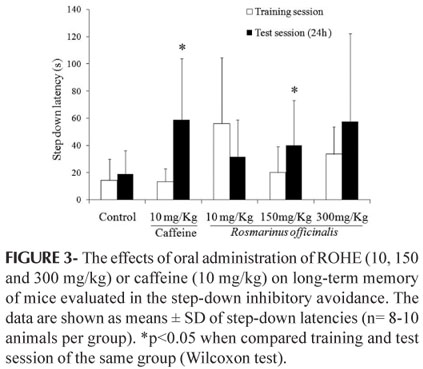Rosmarinus officinalis (Rosemary) demonstrates antioxidant, antidepressant, diuretic, antinociceptive and antiulcerogenic activities. The present study was designed to examine the effects of the hydroalcoholic extract of R. officinalis on the memory of male mice. The behavioral tasks employed were social recognition (SR), the Morris water maze (MWM) and an inhibitory avoidance task (IA). The treatment with 150 and 300 mg/kg of R. officinalis improved the acquisition phase of learning of a new social memory in the SR task because a decrease was observed in the duration of social investigation. In the Morris water maze, no significant effect was observed on spatial memory when the groups were compared for the time spent in the correct quadrant. In the inhibitory avoidance task, the decrease in the step-down latencies in the test session indicate that 150 mg/kg of R. officinalis improved long-term memory when administered in the consolidation phase of learning. In conclusion, the present study showed that, the hydroalcoholic extract of R. officinalis at 150 and 300 mg/kg modulated the short- and long-term memories of mice, in a social recognition and inhibitory avoidance task, respectively. This modulator effect was shown to improve learning and memory processes.
Rosmarinus officinalis; Rosmarinus officinalis; Rosmarinus officinalis; Short-term memory; Long-term memory; Spatial memory



